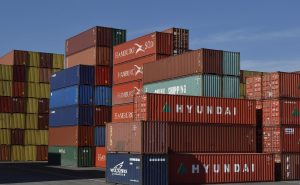Author: Steven J. Cernak
Remember when UPS ran TV commercials, complete with jingles, trying to make logistics something that everyone cares about? No need now. Now, everyone knows how supply chain issues can affect toilet paper supplies, microchips for cars and, perhaps, even make Santa late with toys and decorations for Christmas.
With every supplier, distributor, retailer, and wholesaler scrambling to scrounge supplies and ship finished goods in some reasonably efficient and cost-effective manner, some harried supply chain executives might be tempted to take some bold and dangerous steps. Just as we have done a couple times during the pandemic, your friendly neighborhood antitrust lawyers are here to remind you of the old rules that still apply and speculate on how antitrust might affect these issues in the future.
Price Fixing and Price Gouging Rules Remain the Same
In a time of crisis, one tempting bold but possibly dangerous step for an executive to take is to directly contact or signal intentions to a competitor. For instance, a CEO might want assurance that any price increase to help recover increased transportation costs will be matched by the competitor. Depending on how the conversation goes, antitrust enforcers and courts could find a price fixing agreement — and, as the enforcers have made clear, price fixing is still per se illegal, even during a pandemic or other crisis. An agreement among competitors to boycott logistics providers raising their prices would meet a similar fate.
On the other hand, so-called price gouging does not violate the U.S. federal antitrust laws, as we explained here. So that CEO contemplating a price increase to cover increased transportation costs need not worry about federal antitrust issues; some states, however, do have non-antitrust laws that prohibit price gouging under certain circumstances.
Joint Ventures Might Help
Instead of jail time for price fixing, that phone call between competitor CEO’s could lead to joint efforts that could ease the business pain while staying on the right side of the antitrust laws. As we explained here, the antitrust rules regarding joint ventures do not change in a crisis and some joint efforts among competitors, if implemented properly, do not violate the antitrust laws. So if that CEO call will lead to joint research on new shipping methods; a new jointly-run warehouse; or lobbying the local legislature for regulatory relief, the antitrust laws likely will not stand in the way. Looks like some CEO’s are already thinking about joint ventures.
Bottlenecks Turn Out to be Monopolies?
While the antitrust laws have not changed, the changed economic conditions might lead to new outcomes. For instance, bottlenecks in the supply chain might start to look more like monopolies and so be subject to restrictions on monopolizing actions.
As we explained here, the first element in a monopolization claim under the U.S. antitrust laws is finding that the defendant is a “monopolist.” Usually, that process means defining a market and then seeing if the defendant has a high market share; however, the market share method is used more often only because the data are available to make the estimate. What a court really is trying to measure is the ability of the defendant to control its own price, that is, to price with little regard to how competitors might react. The supply chain crisis has uncovered several bottleneck companies that, at least in certain geographic areas, can name their price. As we described above, those high prices themselves would not violate the antitrust laws; however, any additional actions by that company to exclude new competition and maintain that pricing power could be a violation. Look for actions against such companies in the future.
More Merger Challenges Coming
As we have detailed here and here, the FTC is modifying their merger review processes and making it clear that they plan to challenge more mergers, irrespective of any supply chain issues. And because the number of filings under the Hart-Scott-Rodino Act is way up, the FTC and DOJ Antitrust Division will have that many more chances to challenge mergers. So expecting more merger challenges is an easy prediction.
The supply chain crisis provides more reasons to expect more merger challenges. While the antitrust analysis of any proposed merger can be complex, it usually starts with (and gets reported as merely) a simple counting of competitors — “is this a 4-to-3 merger or 3-to-2?” In the past, antitrust enforcers and courts seemed comfortable, for various reasons, with a small number of remaining current competitors. Often, that analysis was supported by big customers who, when speaking to the investigators as third parties in the HSR process, expressed more support for the efficiencies of the merger than fear of loss of competition for a “just-in-time” supply chain.
Now, such buyers might see greater risks in sole source contracts and could otherwise be more appreciative of redundancy as supply chains add more “just-in-case” features to become less fragile. If so, even the biggest buyers might express more concern to antitrust enforcers about mergers that reduce the number of actual or potential suppliers.
Conclusion
Because antitrust law is meant to protect the competitive process, any big changes in the economy can raise antitrust issues, directly or indirectly. The supply chain disruptions caused by reactions to the pandemic are no different. As the economy evolves to a new normal, antitrust law and lawyers will be here to ensure the competitive process continues to work well for consumers.
Image by druckfuchs from Pixabay
 The Antitrust Attorney Blog
The Antitrust Attorney Blog



